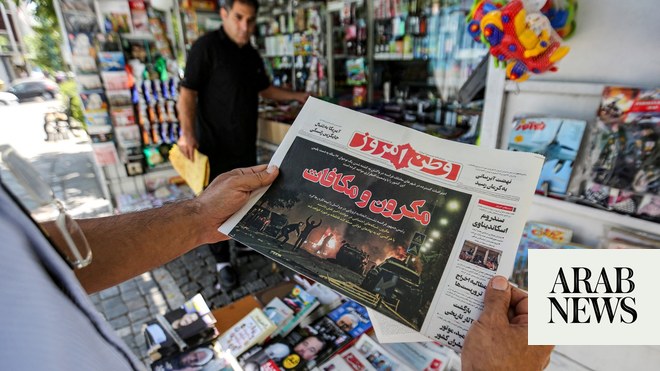
Two young female journalists who were sentenced to lengthy prison terms for reporting on the death of Mahsa Amini have been cleared of charges of collaborating with the United States government but will still spend up to five more years behind bars, the Iranian authorities have announced.
Niloofar Hamedi and Elaheh Mohammadi were arrested in 2022 after reporting on the death and funeral of Amini, the young Kurdish woman who died in police custody in 2022, sparking the nationwide Women, Life, Freedom protests.
Hamedi and Mohammadi were initially charged with “collusion and assembly against national security” and “propaganda activity against the regime” and sentenced to 13 and 12 years respectively.
In January they were released from prison after 17 months in detention and their sentences have now been reduced to five years each after a court acquitted them of further charges of “collaboration with the United States”.
On Sunday, an Iranian judicial spokesperson, Asghar Jahangir, said the five-year prison sentences would now be imposed but did not indicate when, meaning that the two women will have to wait to see when the authorities will implement the court ruling.
The families and lawyers representing the two women said they had hoped they would be pardoned and allowed to remain free, after state media reported last year that Ayatollah Ali Khamenei intended to pardon “tens of thousands” of prisoners, including those arrested during the Women, Life, Freedom protests.
Skylar Thompson, director of advocacy at the US-based organisation Human Rights Activists in Iran, said: “The regime’s refusal to grant these journalists the 2023 amnesty represents a blatant disregard for justice.”
A Tehran-based journalist said on condition of anonymity: “We had all hoped that Niloofar and Elaheh are pardoned soon and are shocked by the announcement. We don’t know what will happen next or when, and where they will be taken to.
“Now that they have made this announcement, this in itself is a sentence. They are psychologically torturing them and their families.”
Human rights activists said that two years on, the regime continues to target and punish those who took part in the nationwide protests that followed Amini’s death.
Iran has already executed 10 protesters, including Gholamreza Rasaei, who was hanged in August after being convicted of killing a member of the Islamic Revolutionary Guard Corps.
According to Human Rights Watch, relatives of people killed, executed or imprisoned during the Women, Life, Freedom protests have also been arrested, threatened and harassed by the regime.












